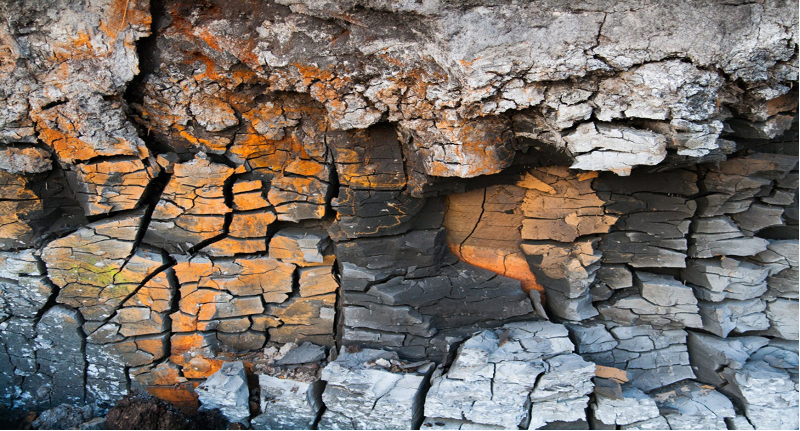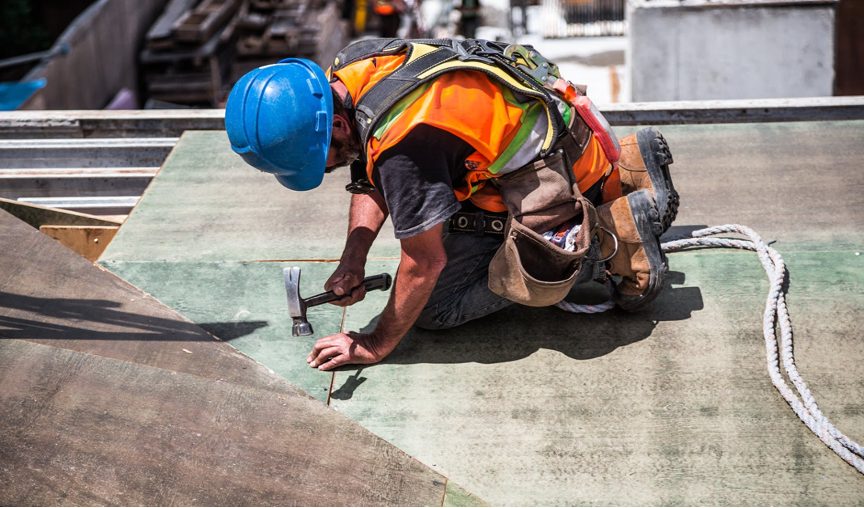Longevity
Learn more about slate roofing and what type of slate will perform best for your Massachusetts home.
One of the most recognizable rooftop materials in Massachusetts, slate has been used for roofing since the 1600s. Because of its historical roots in Massachusetts, some homeowners are quick to assume that slate tile roof life expectancy is relatively low, based on misassumptions of fragility for this traditional material. In reality, most slate tiles can stand the test of time in the right conditions. With that said, not all slate tile offers this type of longevity, which is why it’s important to know what type of slate will perform best for your house.

What is slate roofing?
Slate roofing can be identified by its distinct slabs, which are typically cut into flat rectangles and installed in an overlapping formation. The tiles are cut to be standard grade, textural, or graduated and the most common colors include gray, black, dark red and green. Because slate is a naturally occurring rock composed of various mineral components, the color, texture and durability can vary.
In fact, slate is actually a crystalline rock that forms when clay and fine silt sediments are transformed into bedded shale and undergo a geological process that changes their form. During this natural transformation process, various minerals, like mica, chlorite and quartz, take shape, too. These particular minerals offer low porosity and low absorption — which just happens to be ideal for areas of a home that need enhanced weather resistance, like rooftops.
Though slate is known for its natural durability and defense against the elements, not all slate tiles perform the same. The mineral slate tile roof life expectancy can vary from house to house.
Installation and cost

Hiring a professional in Massachusetts who has legitimate experience and expertise with slate roofing is essential for homeowners to take full advantage of this durable material. Certain design components and installation techniques can have a direct impact on the longevity of slate tiling, so it’s best to leave the project to a professional.
One of the particular challenges with slate installation is the sheer weight of the material, which typically requires wood or steel sheathing. And though slate is hard, heavy and weather resistant, it is also quite brittle, which means it can be chipped and flaked easily during installation. For these reasons, it’s best to rely on professional installation.
How long does slate roofing last?
Weighing the pros and cons of a material can help homeowners determine if it’s the right choice for their house. The tricky part about assessing the value of natural slate roofing is that the life expectancy of this material covers quite a large range, lasting anywhere from 60 to 150 years. Remember, a variety of factors can influence the longevity of slate, including mineral composition, grain quality, tile formation techniques and installation practices.
With that said, the average life expectancy of natural slate still outlasts most traditional roofing materials. To put it in perspective, asphalt shingles only last about 20 years, fiber cement lasts about 25 years, and coal and tar roofing lasts about 30 years. The only roofing material that comes close to slate’s long life expectancy is a clay and concrete combo, which is estimated to last about 100 years.
There’s no doubt that slate offers some incredible advantages, like natural weather resistance and strength. However, the unpredictability of slate’s performance can be controlled by hiring the right professional for your home's new slate roof in Massachusetts.